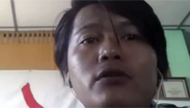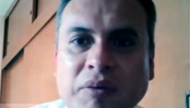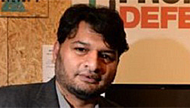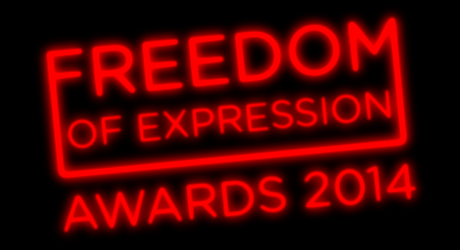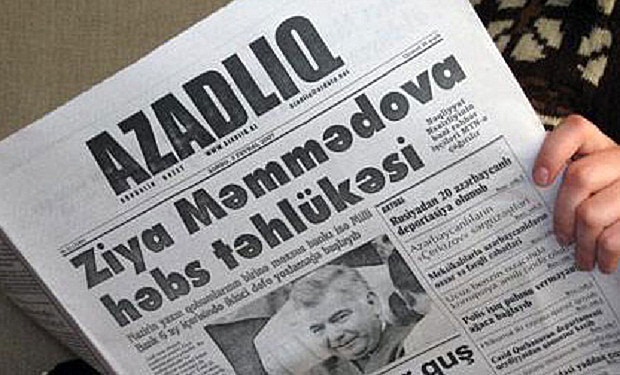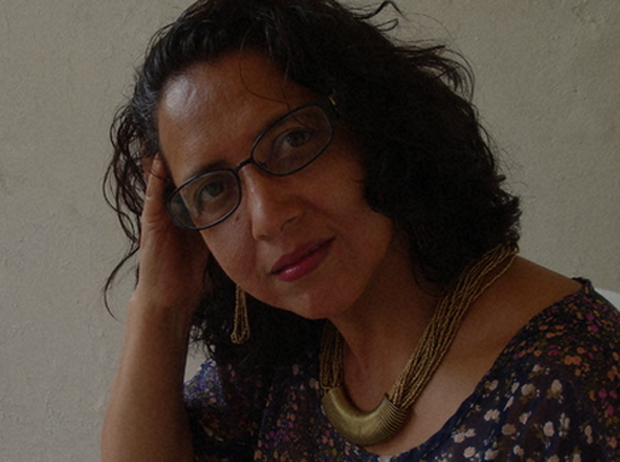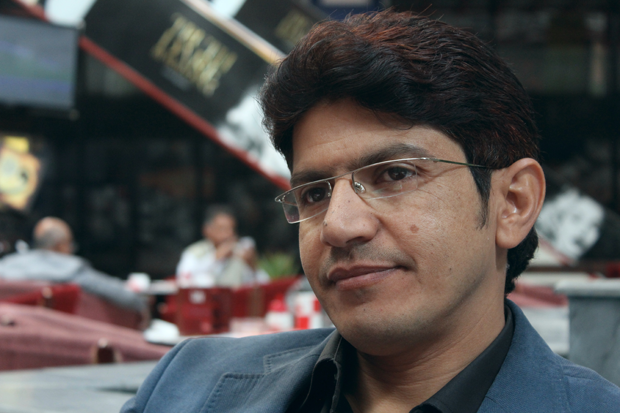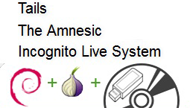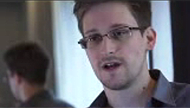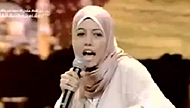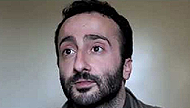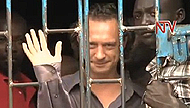18 Mar 2015 | Magazine, mobile, News and features, Volume 44.01 Spring 2015
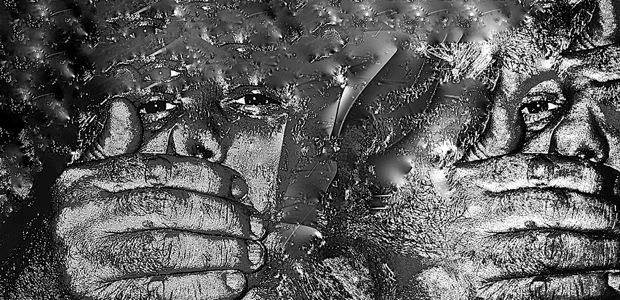
Women’s Voices by Meltem Arikan
Index on Censorship magazine’s editor, Rachael Jolley, introduces a special issue on refugee camps, looking at how migrants’ stories get told across the world, from Syria and Eritrea to Italy and the UK
Nothing is national any more, everything and everyone is connected internationally: economies, communication systems, immigration patterns, wars and conflicts all map across networks of different kinds.
Those linking networks can leave the world better informed and more aware of its connections, or those networks can fail to acknowledge their intersections, while carrying as much misinformation as information.
Where people are living in fear a connected world can be frightening, it can carry gossip and information back to those who pursue them. Decades ago, when people escaped from their homes to make a new life across the world, they were not afraid that their words, criticising the government they had fled from, could instantly be broadcast in the land they had left behind.
It is no wonder that in this more connected world, those fleeing persecution are more afraid to tell the truth about what the regime that tortured or imprisoned them has been doing. While, on the one hand, it should be easier to find out about such horrors, the way that your words can fly around the world in seconds adds enormous pressures not to speak about, or criticise, the country you fled from.
That fear often produces silence, leaving the wider world confused about the situation in a conflict-riven country where people are being killed, threatened or imprisoned. The consequences of instant communication can be terrifyingly swift.
Yet a different side of those networks, new apps or free phone services such as Skype, can provide some help in getting messages back to families left behind, giving them some hope about their loved ones’ future. That is one aspect that those in decades and centuries past, who fled their homelands, could never do. In the late 19th century, someone who escaped torture in Russia and travelled thousands of miles to the United States, might never speak to the family they had left behind again.
Communication has been revolutionised in the last two decades – where once a creaky telephone line was the only way of speaking to a sister or father across a continent or two, now Skype, Viber, Googlechat, and others offer options to see and speak every day.
In this issue’s special report Across the Wires, our writers and artists examine the threats of free expression within refugee camps, and as refugees desperately flee from persecution. Sources estimate that there are between 15.5 and 16.7 million refugees in the world today. Some are forced to live in camps for decades, others are fleeing from new conflicts, such as three million who have already left Syria. Many of us may know someone who has been forced to flee from another regime, those that don’t may in the future, and have some understanding of what that journey is like.
In this issue, writer Jason DaPonte examines how those who have escaped remain worried that their words will be captured and used against their families, and the steps they take to try avoid this. He also looks at “new” technology’s ability to keep refugees in touch with the outside world and to help tell the story of the camps themselves.
Italian journalist Fabrizio Gatti spent four years undercover, discovering details of refugee escape routes and people trafficking. In an extract from his book, previously unpublished in English, he tells his story of assuming the identity of a Kurdish man Bilal escaping torture, and fleeing to Italy via the Lampedusa detention camp, and the treatment he encountered. He speaks only Arabic and English to camp officials, but is able to hear what they said to each other in Italian about those seeking asylum. He uncovers the inhumanity and lack of rights those around him experienced in this powerful piece of writing.
Some of our authors in this issue speak from personal experience of seeking refuge, not speaking the language of the land they are forced to move to, and the steps they go through to resettle and be accepted in another land. Kao Kalia Yang’s family fled Laos during the Vietnam war, moving first to Thailand and then to the United States. She remembers how the family struggled first without understanding or speaking in Thai, then the same battles with English once they settled in the United States.
Ismail Einashe, whose family fled from Somaliland, talks to those who have escaped from one of the most secretive countries in the world, Eritrea. Einashe talks to Eritreans, now living in the UK, who are still afraid to speak openly about the conditions at home for fear of retribution.
The report also examines how the global media portrays refugee stories, the accuracy of those portrayals and how projects such as a new Syrian soap opera, partly written by a refugee, are giving asylum seekers and camp dwellers more power to tell the stories themselves.
But when people are escaping danger, the natural inclination is to stay quiet and under the radar. Some bravely do not. They intend to alert the world to a situation that is unfolding, and to attempt to protect others. Our report shows how much easier it is for the world’s citizens to find out about terrible persecution than it was in other eras, but how those communication tools can be turned back on those that are persecuted themselves. The push and pull of global networks, to be used for freedom or to silence others, is an on-going battle and one that we can only become more aware of.
Order your digital version of the magazine from anywhere in the world here
© Rachael Jolley
15 Dec 2014 | ArtFreedomWales, News and features, United Kingdom
Index on Censorship has been exploring artistic freedom of expression and contemporary forms of censorship in the UK. Who or what controls what is sayable in the arts? Who has a voice in the arts? Do the answers vary as we move around the different member nations of the UK?
Looking at our culture through the prism of artistic freedom of expression opens up questions about the power relations between artists, venues, audiences, the police, the media and community interest.
Our initial case study Beyond Belief – theatre, freedom of expression and the police offered insight into how these relationships are often played out in the present day. Deepening our exploration, conferences in London in 2013 and Belfast in early 2014, have been followed by a programme of work in Wales in the latter half of this year. Art Freedom Wales was Index’s exploration of whether Wales is enjoying its right to artistic free expression.
Across all three projects, it is becoming clear there are massive pressures on what is sayable in the arts–rifts around what is acceptable to funders, to the audience, to public opinion, or even health and safety. It is also clear that there are significant questions around the issue of access to artistic expression–for established and aspiring artists, as well as the public at large. Events this past summer at the Barbican around Brett Bailey’s Exhibit B have underlined recurring questions around the role of the police and the media in shaping what gets to be seen.
In 2015, Index is planning to explore the state of artistic freedom in Scotland before holding a state of the nations event which will bring together key players to discuss how to reinforce support for artistic expression across the UK.
ArtFreedomWales
Over the past few months Index’s project ArtFreedomWales has hosted a series of online discussions with artists from across Wales–established artists, emerging artists and artists working in Welsh. You can catch up with everything that’s been said here.
These discussions, and the issues they raised, informed our approach to a Free Speech Hearing in Cardiff on 27 November. As a culmination of the project, the hearing invited practitioners from across art forms alongside policy makers and cultural gatekeepers to come together to discuss the question “Is Wales enjoying its right to freedom of artistic expression?”
To open the hearing, Index invited Turkish playwright Meltem Arikan, an established artist, with direct experience of censorship who is now living in exile in Wales, to survey the Welsh arts scene from the eye of an outsider.
This was followed with an array of evidence volunteered from across Wales, short presentations surfacing a number of topics from offence to rumour, and self-censorship to cultural education.
Moving from the stage to discussion between peers, major themes and concerns were examined in more detail in breakout sessions.
Finally, a panel discussion featuring Dai Smith (Arts Council Wales), John McGrath (National Theatre Wales), David Anderson (Museums Wales), Lleucu Siencyn (Literature Wales) and Elen ap Robert (Pontio) asked how leading organisations in Wales might take on some of the issues raised during the afternoon?
This article was posted on Dec 10, 2014 at indexoncensorship.org
7 Aug 2014 | Europe and Central Asia, News and features, Turkey

Turkish Prime Minister Recep Tayyip Erdogan (Photo: Philip Janek / Demotix)
Shortly before campaigning for Turkey’s upcoming presidential election was officially set to begin, the director of public broadcaster TRT threatened to cut coverage of candidate Selahattin Demirtas. The reason? Demirtas had publicly criticised TRT for bias towards one of the three men in the running — outgoing Prime Minister Recep Tayyip Erdogan.
The case, reported by Index on Censorship’s media freedom mapping tool, is just one example of the challenges facing free expression in Turkey on eve of a vote that could alter its political system. When Turks go to the polls on Sunday, it will be in the country’s first direct presidential election. The consensus is that Erdogan will beat his opponents — Dermitas from the left wing People’s Democratic Party and Ekmeleddin Ihsanoglu, representing the centre-left Republican People’s Party and the far-right Nationalist Movement Party — comfortably; some predict after just one round. But what makes this election even more significant, is Erdogan’s declared intention to transform the presidency from a largely ceremonial role to a powerful office based on the US model. This would effectively allow him to remain in power despite being barred from re-election as prime minister by term limits.
Concerns have been raised about the impact of the state of free expression in Turkey on the election. The Organisation for Security and Cooperation in Europe (OSCE), in its capacity as an election observer, recently stated that “direct interference of media owners and political actors into editorial freedom results in a lack of independent and investigative journalism and leads to limited criticism towards the ruling party and the prime minister”. The interim report from its election observation mission published on 31 July, also highlighted shortcomings in the legal framework around impartiality of media coverage and the the country’s restrictive internet legislation.
This is at least in part backed up by Demirtas’ claims. According to research from Turkey’s broadcasting regulator, between 4 and 6 July, TRT gave 533 minutes worth of coverage to Erdogan, compared to 3.24 seconds for Ihsanoglu and 45 seconds to Demirtas. Erdogan has also been accused of blurring the lines between his role as prime minister and presidential candidate, and using resources and platforms exclusively available to him to rally support. The campaigns of Erdogan’s opponents “have been active, but with limited visibility”, as the OSCE put it.
Other recent media freedom cases go beyond questions of impartiality. Released just days before the election, a report by Bianet, a Turkish news site that monitors attacks on press freedom, showed that assaults on journalists is on the rise. As covered by Index, the research found that between April and June, there had been 54 attacks on journalists — between January and March, the figure was “at least” 40. The report also noted that 133 fines were handed out to various TV and radio institutions and continued impunity around attacks on the media. This follows the pattern of Turkey’s global press freedom ranking, which has deteriorated over the past years.
Internet freedom has also been dealt some blows in the lead-up to the election. The latest Twitter transparency report, published last week, showed that Turkey has submitted the highest number of content removal requests in the past six months — despite the fact that Twitter was banned in Turkey for two weeks in March and April. The social media platform has been used by many of the country’s 36 million internet users to have their say on political matters, most notably during last summer’s Gezi park protests — a topic Turkish playwright Meltem Arikan has written about extensively for Index.
More recently, Turkish social media was flooded with photos of grinning women, in protest at Deputy Prime Minister Bulent Arinc declaring that women shouldn’t laugh out loud in public. While the bans on Twitter and later also YouTube were short-lived, authorities continue to keep close tabs on the internet. Twitter user @fuatavni, who has almost one million followers, was blocked in Turkey after criticising the government. Earlier in July, Erdogan filed a legal complaint against the editor of Today’s Zaman, Bulent Kenes, over what he claimed were insulting tweets. This comes in the wake of controversial legislation passed in February, which gives the government wide-reaching powers in regulating the internet.
More about Turkey from mediafreedom.ushahidi.com:
Newspaper Agos, film director threatened on Twitter
News crew told to leave public event attended by minister
Greek daily newspaper in Istanbul closes
Broadcaster threatens to stop covering presidential candidate
Prime Minister files legal complainst against newspaper editor
This article was published on August 7, 2014 at indexoncensorship.org




